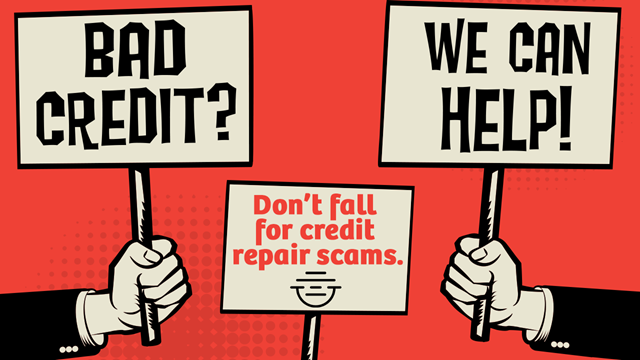
Fixing your credit can feel overwhelming—especially if you’re dealing with collections, late payments, or other negative items. That’s why so many people turn to credit repair companies for help. Unfortunately, not all companies have your best interests in mind. Credit repair scams are everywhere, and falling for one can make your financial situation even worse.
But don’t worry—there are safe, legal, and effective ways to improve your credit. In this post, we’ll show you how to spot credit repair scams and share smart strategies for fixing your credit the right way.
🚩 Red Flags of Credit Repair Scams
Scammers often promise fast, unrealistic results. Here are a few signs that a credit repair company might be a scam:
1. They Promise to “Erase” Negative But Accurate Information
If a company says they can remove accurate negative items like late payments or collections, run. Only inaccurate or outdated information can legally be removed.
2. They Demand Upfront Payment
Under the Credit Repair Organizations Act (CROA), it’s illegal for companies to charge fees before services are performed. Any request for payment before results is a huge red flag.
3. They Don’t Explain Your Rights
A legitimate company will educate you about your credit rights. Scammers often avoid talking about the law or try to pressure you into signing without fully explaining what you’re agreeing to.
4. They Ask You to Lie or Create a New Identity
Some shady operations may suggest you use a fake Social Security number or create a “new credit profile” using a CPN (Credit Privacy Number). That’s fraud—and you could face legal consequences.
5. No Written Contract or Cancellation Policy
By law, a credit repair company must give you a written contract detailing your rights and services. They must also give you a 3-day window to cancel without penalty.
✅ How to Fix Your Credit the Safe Way
Improving your credit takes time and effort, but it’s absolutely doable—and you don’t have to spend a fortune. Here are a few safe steps to start:
1. Check Your Credit Reports Regularly
Get your free reports from all three bureaus (Equifax, Experian, and TransUnion) at AnnualCreditReport.com. Review them for errors or outdated information.
2. Dispute Inaccuracies
You have the right to dispute errors on your credit report. File disputes directly with the credit bureaus online or by mail. If they can’t verify the information, they must remove it.
3. Pay Bills On Time
Payment history is the biggest factor in your credit score. Set reminders, use autopay, or budget wisely to ensure you never miss a due date.
4. Keep Your Credit Utilization Low
Aim to use less than 30% of your available credit. Paying down balances and requesting credit limit increases can help.
5. Use Credit-Building Tools
Consider secured credit cards, credit builder loans, or rent reporting services to add positive payment history to your credit file.
6. Work With a Trusted Professional
If you choose to get help, look for companies that are transparent, licensed, and reputable. A legitimate credit professional will offer real education—not empty promises.
Final Thoughts
Your credit is too important to leave in the hands of scammers. Knowing the warning signs of credit repair fraud can protect you from financial harm. By taking the right steps and staying informed, you can safely repair your credit—and build a strong financial future.
Need help rebuilding your credit the right way? At JDP Credit Solutions, we offer trusted tools and expert guidance to help you take control of your credit journey, without the scams. Reach out today to learn more.
